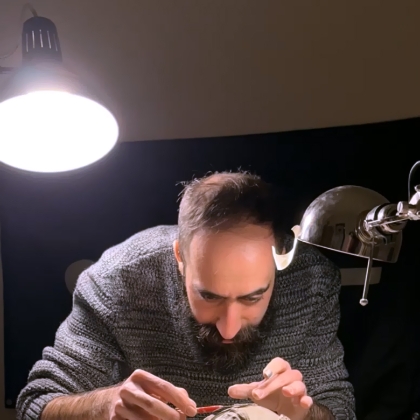Works by the artist Mohsen Hazrati deal with the process of linking traditional literature with digital technologies.
After majoring in graphic design, with a minor in new media and digital art, Mohsen Hazrati graduated from the Shiraz Art Institute of Higher Education in 2012. His art has been seen at a variety of conferences—for example, at the University of the Arts Berlin, the Staatliche Akademie der Bildenden Künste (State Academy of Fine Arts) in Stuttgart, the IAM weekend Barcelona, EVA, the Multimedia Anthropology Lab at University College London; the Electronic Literature Organization Conference at the University of Central Florida, TEDxMollaSadraSt (Shiraz, Iran), and at exhibitions in the Grafikenshus Museum, peer to space, Radiance VR, Synthesis, Triennale Fellbach, and the Transfer Gallery. With Milad Forouzande, Hazrati cofounded the Dar-Al-Hokoomeh Project (a new media art project) which he has been curating since 2013 in Shiraz, Iran. The artist lives in Berlin.
